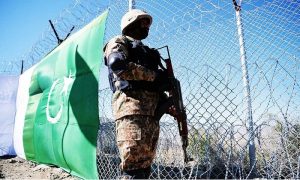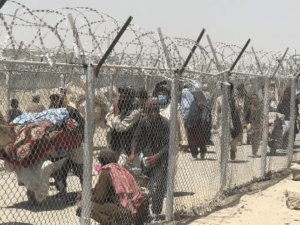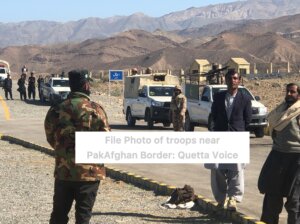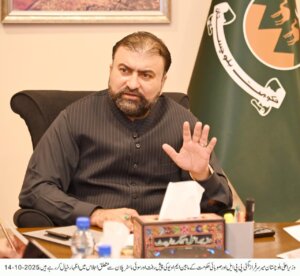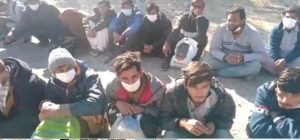Pakistan faces extreme weather changes, natural calamities: Experts warn
Staff Reporter :
Environmentalists have expressed serious concern over extreme weather changes and the looming threat of natural calamities in Pakistan. WWF-Pakistan organized the second consultative workshop in Quetta to prepare recommendations to address the issue of climate change.
Experts put their heads together to discuss ways and means to prepare recommendations on revising the Nationally Determined Contributions (NDCs) document and raising the overall ambition. All relevant stakeholders from the Balochistan government, private sector, and non-profit organizations attended the workshop, which served as a forum to highlight initiatives and areas of improvement in the five leading sectors consisting of agriculture, energy, forestry and land-use, industries and waste, as well as to exchange knowledge and experience related to climate change mitigation/adaptation measures.
Pakistan ranks fifth amongst countries prone to impacts of climate change
While inaugurating the event, Dr Tahir Rasheed, Regional Head Sindh-Balochistan, WWF-Pakistan stated that “Although Pakistan ranks 135 in terms of per capita greenhouse gas emissions globally, it is ranked fifth amongst countries most vulnerable to the impacts of climate change according to Germanwatch’s Global Climate Risk Index.
It is evident as the country faces extreme weather changes and natural calamities such as urban flooding, heatwaves, rising sea levels, loss of biodiversity and droughts. The NDC document is an opportunity to delineate a climate-smart strategy for the effective execution of interventions that will facilitate us in meeting the 20 percent target of emissiosn reduction by 2030. This deliberation will not only aid us in adapting to climate change impacts as a nation but will also help citizens to make lifestyle changes to tackle it.”
The background of international treaties and the Paris Agreement which is a legally binding international treaty, on climate change, to limit global warming well below 2, preferably to 1.5 degrees Celsius, was presented by Nazifa Butt, Senior Manager, Climate and Energy Programme. The Paris Agreement demands countries to communicate the actions that will help them reduce their Greenhouse Gas emissions in order to reach the goals of the Paris Agreement. She also stressed the need of engaging the provincial public sector departments, educational institutes, and corporates sectors, as without them climate change mitigation targets cannot be streamlined.
Mr. Zulfiqar Durrani, Provincial Head, UNDP, Chaired the dialogue, taking the participant’s feedback on existing GHG emission targets and goals – present in the existing NDCs document. Stakeholders from different sectors voiced their concerns and challenges, in addition to sharing suggestions for effective execution of climate action plans.
This dialogue was a first of a kind initiative on NDCs which was concluded with the following remarks, by Mr.Durrani who stated that “SDGs provide a comprehensive development charter for the world. For effective climate action, I strongly believe, SDG 17 (Global Partnerships for the Goals) is the way forward for all key actors, local, national, and global.’’
Pakistan faces extreme weather changes, natural calamities: Experts warn

